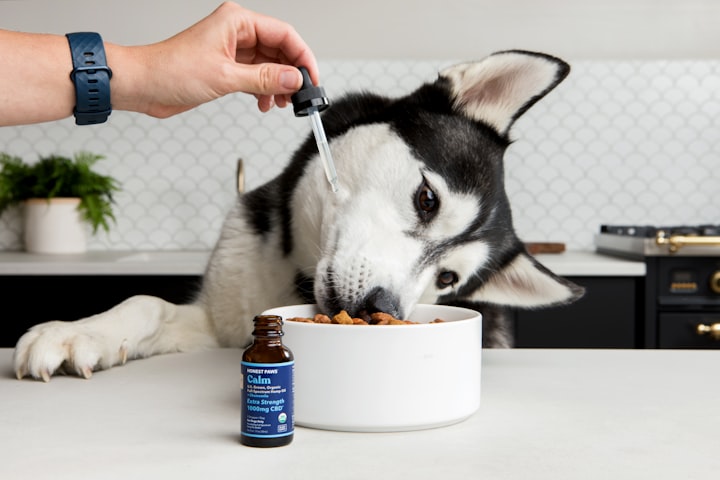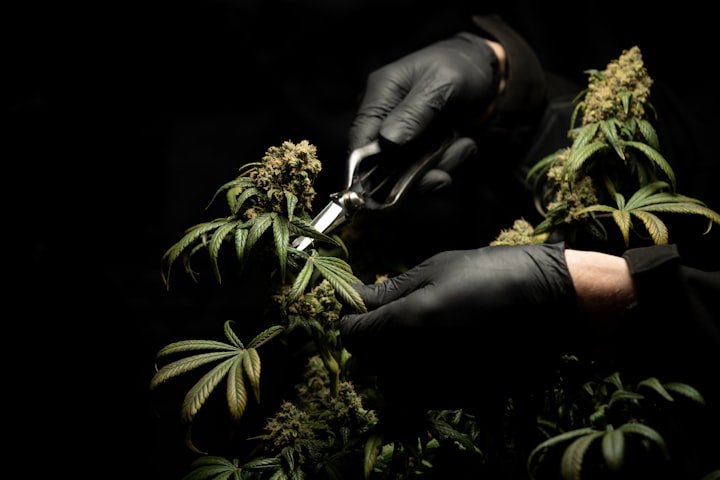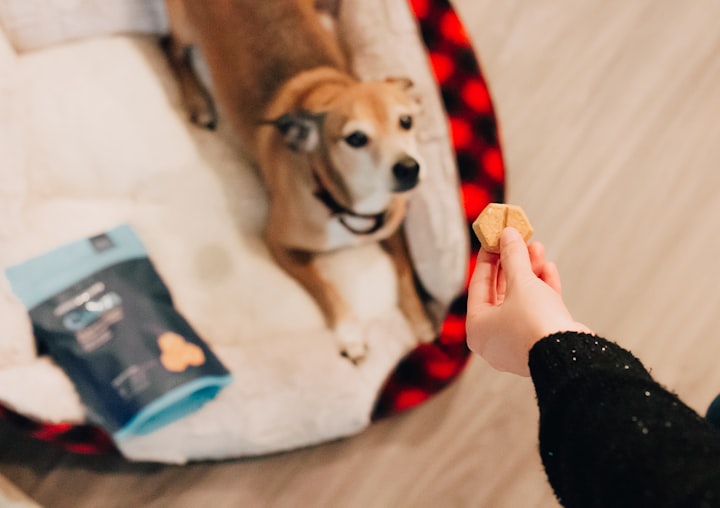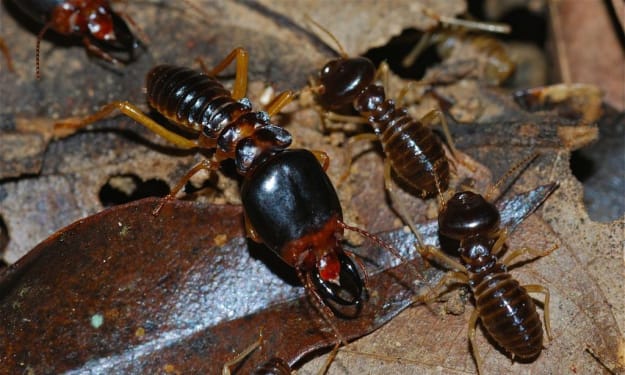CBD Oil For Dogs
CBD oil is becoming well-recognized as an incredibly effective natural medicine. Your canine friends will agree.

What Is CDB Oil
Before we get into the incredible benefits and recommended uses, let's do a quick overview of exactly what CDB Oil actually is.
Also known as Cannabidiol, CBD is a cannabinoid (a compound found in cannabis) that can be derived from the cannabis plant and isolated in a concentrated and ingestible oil.
There are two active compounds found in the cannabis flower that are being studied extensively — THC (tetrahydracannabinol), and CBD (cannabidiol)
THC is widely known as the psychoactive compound in cannabis. The one that produces the variety of psychological and physiological effects that cannabis is most known for. To put it simply, THC is what causes the high or the “trip” that we hear about so often.
CBD, on the other hand, is becoming more of a household compound name and is known not to cause any psychoactive effects for users. Instead, it has been and is continuing to be proven to provide some pretty incredible health benefits in the right situations.

CBD Oil For Dogs
One of the most lucrative niches for CBD oil, in my opinion, lies within the market for dog CBD oil.
Everybody knows that a true dog owner and lover will overlook ridiculous price tags and overinflated vet bills in order to give their best friend the best possible chance at a healthy life.
This isn’t to say that CBD oil for dogs is incredibly expensive, but instead to point out the fact that there is most definitely a market for it.
Let’s discuss some of the most important and well-researched uses for CBD oil in dog care and treatment.
- Anxiety & Stress
- Moderate to Severe Pain
- Arthritis & Joint Pain
- Digestion Issues
- Cancer Symptom Treatment
- Epileptic Seizure Treatment
These are some of the areas in which CBD oil has been proven to help dogs cope with existing ailments and even prevent new issues from arising.
What Is High-Quality CBD Oil?
CBD oil can be synthesized by virtually anyone who knows a thing or two about extracting oil from flowers.
But this doesn't mean that everyone can do it properly or effectively. You always want to find high-quality CBD oil, especially when it is being used for important medical or quality of life reasons.

So what exactly do we look for in high-quality CBD oil?
Is it organic? Top-tier CBD oils will be made from organically grown cannabis plants that are free of pesticides and other toxins.
How is it processed? Carbon dioxide and cold-press extraction are well-known methods that produce toxin-free oil. Some companies however will use cheap, short-cut style methods to extract their CBD oil (e.g propane/butane solvents) which can be potentially harmful.
Is it independently tested? Find companies that test their CBD oils independently and provide a COA (certificate of analysis) to supplement.
What is the THC level? Make sure to check every product’s THC potency. Oils with a higher THC level will potentially be harmful to your dog. Look for products with less than 0.3% THC to be safe.
Dosage & Feeding
The appropriate CBD oil dosage for dogs will rely mainly if not entirely on their body weight.
Let’s do a quick dosage breakdown based on dog size categories:
Small Dogs (< 25 lbs): Approximately 2 mg per dose
Medium Dogs (25–60 lbs): Approximately 4 mg per dose
Large Dogs (60+ lbs): Approximately 8 mg per dose
Note: These dosages are simply a guideline and can be adjusted based on your pet’s unique characteristics and needs.
In regards to how you should be administering your dog’s CBD oil, there are a couple of simple methods for owners to choose from.

Treats/Soft Chews
CBD oil-infused treats are an obvious option. Purchase treats that have the oil you are looking for in the right concentrations. Most of the infused treats available today will have feeding directions on the package, but further research can be done in order to get more information.
There are a few things, however, that potential customers and loving dog owners should be made aware of.
1. Baking CBD Can Affect Its Viability
Processing CBD comes with the risk of damaging its chemical structure and as a result potentially affecting its medicinal value.
This is because CBD is known to begin degrading at right around 200 degrees Fahrenheit, and at 350 degrees Fahrenheit, is completely broken down.
This translates into the CBD experiencing bioavailability, which in our context, means that your dog won’t absorb it and reap the desired benefits.
The best way to bake CBD into dog treats is by processing it at very low temperatures over a longer duration.
Obviously this is more time and money-consuming. As a result, you can bet that some companies will sacrifice technique and quality to sweeten their bottom line.
Customers can do their own product and manufacturing research in order to find a brand that meets their expectations.
Ultimately however, CBD-infused dog treats will inevitably not be able to consistently produce accurate dosages.
This may not be much of an issue for owners in certain situations, in which case, shop away!

2. Potentially Dangerous Additives
The second and in some cases most dangerous factor for dog owners to be aware of when buying CBD treats is the presence of dangerous or unnecessary additives.
Fillers & Added Vitamins
Things like brewers yeast and cellulose are filler, while added vitamins are most likely synthetic and function differently than vitamins from an organic source.
Artificial Flavors Colors & Preservatives
There are many CBD treats that have artificial preservatives buried in their ingredients list, which are completely unnecessary and in some cases can be dangerously harmful to dogs. These additives are used to increase the shelf life of the product, and will not do the same thing for your dog’s life!
Flavoring agents, especially sweeteners, can provide energy for harmful bacteria and yeast inside your dog’s gut. This can contribute to a whole spectrum of sicknesses and diseases, not to mention the fact that most flavorings are completely synthetic.
Finally, artificial colors are usually added for cosmetic reasons like standing out on a shelf and do absolutely nothing to benefit your dog. Some artificial dyes can trigger allergic reactions and in some cases have been linked to causing cancer.
Now although this may all sounds scary, I know for a fact that there are brands out there who truly care about their canine consumers and produce high-quality, 100% healthy CBD-infused treats. So don’t lose hope!

CBD Oil Tinctures
CBD oil tinctures are made when the hemp-derived cannabidiol compound is converted to an odorless oil known as a tincture, or extracted as an isolate.
These oils contain higher amounts of organic CBD than infused treats.
They contain other minor cannabinoids such as cannabinol (CBN) cannabichromene (CBC), as well as terpenes and flavonoids, all of which are proven to have healing properties.
One of the important advantages for dog owners is the fact that these oil tinctures can be administered in precise dosages. Treats are fixed dosages, and even then may very well be inconsistent from one another.
Owners can be sure that their dog is getting exactly the amount of CBD that they need by using the precision oil droppers.
In terms of HOW exactly your dog is consuming their CBD oil, well that can be done in a number of ways.

Some dogs may let their humans go straight from the dropper under their tongues. Others may prefer to remain oblivious and have it mixed in with their food, water or treats!
CBD oils are versatile and can be administered using whichever method is most comfortable for both dog and owner.
I sincerely believe in the incredible healing potential of CBD oils both for humans and for our canine friends. With that being said, always do your own research and be sure to consult a veterinarian if you ever have questions or doubts.
About the Creator
Rhys McIntyre
Professional Online Content Writer & Editor
Canadian Born & Raised
Science Grad - Undercover English Major
Experience & Advice | Entertainment & Education | BSc






Comments
There are no comments for this story
Be the first to respond and start the conversation.